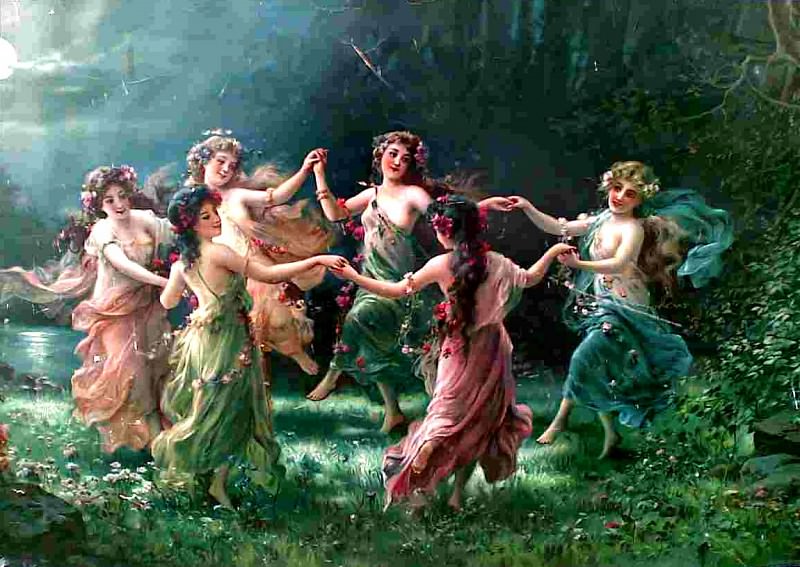The World of AM Art: A Unique Perspective on Contemporary Creativity
Art is a reflection of the times we live in, capturing the essence of human experience, emotion, and thought. AM Art, an innovative movement within the broader spectrum of contemporary art, is making waves for its unique approach to creative expression. Rooted in the principles of abstraction, minimalism, and a deep connection to the metaphysical, AM Art offers a fresh perspective that challenges traditional boundaries and invites viewers to engage with art on a more profound level.
Origins of AM Art
The origins of AM Art can be traced back to the early 21st century, during a period of rapid technological advancement and globalization. Artists within this movement sought to break away from the constraints of conventional art forms, instead focusing on creating works that transcend physical limitations and explore the deeper aspects of existence. The "AM" in AM Art stands for "Abstract Metaphysical," a term that encapsulates the core philosophy of the movement.
Abstract Metaphysical: A New Language of Art
At its core, AM Art is about abstraction and metaphysical exploration. Abstraction in this context does not merely refer to the absence of recognizable forms but rather to the distillation of concepts, emotions, and experiences into their purest essence. AM artists use a variety of mediums, including painting, sculpture, digital art, and mixed media, to convey ideas that often elude direct representation.
Metaphysical exploration is another key element of AM Art. Artists within this movement are deeply interested in questions of existence, reality, and the nature of consciousness. Their works often invite viewers to ponder these questions, creating a dialogue between the art and the observer. This metaphysical dimension sets AM Art apart from other contemporary movements, offering a more introspective and contemplative experience.
The Role of Technology in AM Art
Technology plays a significant role in the development and dissemination of AM Art. In an era where digital tools are readily accessible, AM artists have embraced new technologies to push the boundaries of creativity. Digital art, virtual reality, and artificial intelligence are all used to create immersive experiences that challenge traditional notions of what art can be.
For example, AM artists often use generative algorithms to create abstract compositions that are constantly evolving, never the same twice. These works are not static objects but dynamic processes, reflecting the ever-changing nature of reality itself. The use of technology in AM Art also allows for greater interactivity, inviting viewers to become active participants in the creative process.
Key Figures in the AM Art Movement
Several artists have emerged as key figures within the AM Art movement, each bringing their unique perspective and style to the table. These artists are not bound by a single medium or technique; rather, they are united by their commitment to exploring abstract and metaphysical themes.
One such artist is Alex Morrow, whose work often combines digital and traditional mediums to create ethereal landscapes that seem to exist in a realm beyond the physical world. Morrow's use of color and form is both evocative and elusive, inviting viewers to lose themselves in the depths of his compositions.
Another prominent figure is Maya Allen, known for her immersive installations that use light, sound, and projection to create environments that blur the line between reality and imagination. Allen's work is deeply rooted in metaphysical philosophy, often exploring themes of time, memory, and consciousness.
The Impact of AM Art on Contemporary Culture
AM Art has had a profound impact on contemporary culture, influencing not only the art world but also design, architecture, and even technology. The movement's emphasis on abstraction and metaphysical exploration has resonated with a generation of creatives who are seeking to push the boundaries of their respective fields.
In design, for example, the influence of AM Art can be seen in the rise of minimalism and the use of abstract forms to convey complex ideas. Architects, too, have drawn inspiration from AM Art, creating spaces that are both functional and meditative, encouraging occupants to engage with their surroundings on a deeper level.
The impact of AM Art extends beyond the visual arts, influencing music, literature, and film. Musicians and composers have experimented with abstract soundscapes that evoke the same sense of otherworldliness found in AM Art. Writers and filmmakers, inspired by the movement's metaphysical themes, have created works that explore the nature of reality and the human experience in novel ways.
The Future of AM Art
As AM Art continues to evolve, it remains at the forefront of contemporary creativity, challenging artists and viewers alike to think beyond the conventional and embrace the abstract and the metaphysical. The future of AM Art is likely to see even greater integration of technology, with virtual and augmented reality playing a more prominent role in the creation and experience of art.
Moreover, as society becomes increasingly interconnected through digital platforms, the reach of AM Art will continue to expand, attracting a global audience and fostering a new wave of creative expression. The movement's emphasis on introspection and metaphysical inquiry is particularly relevant in today's world, where individuals are seeking meaning and connection in an increasingly complex and fast-paced environment.
Conclusion: The Enduring Relevance of AM Art
AM Art is more than just a movement; it is a reflection of the evolving nature of human creativity and consciousness. By embracing abstraction and metaphysical exploration, AM Art offers a unique lens through which to view the world, challenging us to question our perceptions and engage with art on a deeper level. As the movement continues to grow and adapt to new technologies and cultural shifts, its influence will undoubtedly endure, leaving a lasting impact on the landscape of contemporary art.




